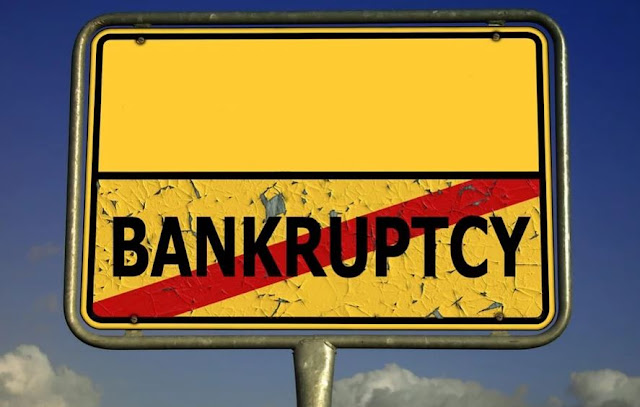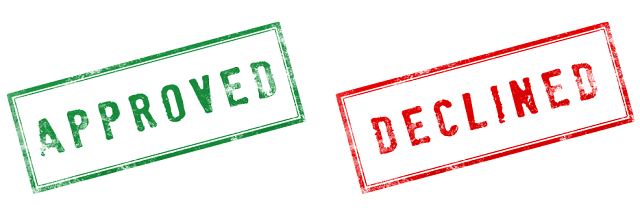
The banking world has evolved a lot over the last couple of decades. Now in 2025 approximately 90% of Americans have a bank account and reap its many benefits. Customers have a safe place to store their savings alongside accessing loans, making investments, and checking finances anywhere in the world. This is especially important after the recent bank failures around the world and the key FDIC insurance level of $250,000.
Build Up A Bigger Bank Account And Cash In Here
A lot has changed since the First Bank of the United States was established in nearly two and a half centuries ago. Now many types of banking have emerged in the modern global and digital economy. No banks are changing a lot each year with new laws, economic volatility, fintech innovations, low interest rates, investment options, and cryptocurrency expansion.
A lot has changed since the First Bank of the United States was established in nearly two and a half centuries ago. Now many types of banking have emerged in the modern global and digital economy. No banks are changing a lot each year with new laws, economic volatility, fintech innovations, low interest rates, investment options, and cryptocurrency expansion.
It can be challenging to choose the right bank in the modern age, especially with rampant inflation right now. There are also big banks that are struggling that have been around for decades or even centuries due to scandals, macroeconomic issues, and sluggishness to adapt to the modern digital era. Banking has been reimagined in the new digital economy, and the consumer has benefited for the most part.
Not sure how many types of banks there are to choose from? Don't worry, we have got you covered on all the different types of banking in 2025.
Top 10 Types Of Banking To Choose From
1. Central Banks
This type of finance serves a governmental role as they help the country meet its economic goals through controlling monetary policy and the flow of currency. Central banks, sometimes called federal banks, also supervise commercial banks and set interest rates.
2. Commercial Banks
Commercial banks support small to large businesses compared to individuals. Mom-and-pop stores can open checking and saving accounts, loans, get access to credit, and transfer funds to companies in foreign markets.
3. Retail Banks
Retail banks are consumer-based where you go for everyday banking and other financial services. You can access different types of banking accounts, loans, credit cards, and insurance.
They often provide financial advisement services so you can get personal loans and mortgages. Retail banks are now offering more high yield savings accounts (HYSA) with interest rates in the 4% to 5% now, so take advantage! With HYSA options booming, you may be able to earn more than you are paying on a loan or even a mortgage depending on when you locked in your rate.
4. Private Family Banking
Private family banking funds whole life insurance policies to develop cash value. This lets customers borrow money to help pay off debt, mortgages, or to fund other aspects of your life.
These different banks offer protection so the policy owner can access the line of credit and receive a death benefit so the family has financial protection.
5. Investment Banks
Think Morgan Stanley and Goldman Sachs.
Investment banks trade stocks and bonds between companies and investors.
They also focus on advising individuals and corporations who need financial guidance, reorganizing companies through mergers and acquisitions, and managing investment portfolios.
6. Private Banks
Private banks offer exclusive types of bank accounts to those who have $1 million of net worth. A wealthy individual owns the bank and offers a useful service to high earners so they can get advice from people who understand their financial situation and connections if they need a loan.
7. Cooperative or Mutual Banks
Cooperatives fall under retail and commercial banks. They are distinguished by their local or community-based associations who control how business is operated.
They offer loans and bank accounts, often active in a single community.
8. Savings and Loan Association
These are financial institutions that use deposited savings to create mortgages, refinance loans, and access other loans so customers can build or renovate their property.
9. Shadow Banks
Shadow banks are less regulated, known for running money market funds and hedge funds. They get their funding by borrowing, connecting with investors, or making their own funds instead of relying on the central bank.
10. Swiss Banks
While Swiss banks aren't necessarily different from the other types of banks mentioned above in terms of products and services offered, they do offer one major well-known advantage: privacy and discretion.
Not sure how many types of banks there are to choose from? Don't worry, we have got you covered on all the different types of banking in 2025.
Top 10 Types Of Banking To Choose From
1. Central Banks
This type of finance serves a governmental role as they help the country meet its economic goals through controlling monetary policy and the flow of currency. Central banks, sometimes called federal banks, also supervise commercial banks and set interest rates.
2. Commercial Banks
Commercial banks support small to large businesses compared to individuals. Mom-and-pop stores can open checking and saving accounts, loans, get access to credit, and transfer funds to companies in foreign markets.
3. Retail Banks
Retail banks are consumer-based where you go for everyday banking and other financial services. You can access different types of banking accounts, loans, credit cards, and insurance.
They often provide financial advisement services so you can get personal loans and mortgages. Retail banks are now offering more high yield savings accounts (HYSA) with interest rates in the 4% to 5% now, so take advantage! With HYSA options booming, you may be able to earn more than you are paying on a loan or even a mortgage depending on when you locked in your rate.
4. Private Family Banking
Private family banking funds whole life insurance policies to develop cash value. This lets customers borrow money to help pay off debt, mortgages, or to fund other aspects of your life.
These different banks offer protection so the policy owner can access the line of credit and receive a death benefit so the family has financial protection.
5. Investment Banks
Think Morgan Stanley and Goldman Sachs.
Investment banks trade stocks and bonds between companies and investors.
They also focus on advising individuals and corporations who need financial guidance, reorganizing companies through mergers and acquisitions, and managing investment portfolios.
6. Private Banks
Private banks offer exclusive types of bank accounts to those who have $1 million of net worth. A wealthy individual owns the bank and offers a useful service to high earners so they can get advice from people who understand their financial situation and connections if they need a loan.
7. Cooperative or Mutual Banks
Cooperatives fall under retail and commercial banks. They are distinguished by their local or community-based associations who control how business is operated.
They offer loans and bank accounts, often active in a single community.
8. Savings and Loan Association
These are financial institutions that use deposited savings to create mortgages, refinance loans, and access other loans so customers can build or renovate their property.
9. Shadow Banks
Shadow banks are less regulated, known for running money market funds and hedge funds. They get their funding by borrowing, connecting with investors, or making their own funds instead of relying on the central bank.
10. Swiss Banks
While Swiss banks aren't necessarily different from the other types of banks mentioned above in terms of products and services offered, they do offer one major well-known advantage: privacy and discretion.
There is a reason why so many wealthy individuals and businesses have used Swiss banks for decades. They provide the trust and anonymity from governments, media, or businesses. Sometimes this is used for questionable financial activities, but other times it just provides a type of banking for bank customers and corporate entities that just want to be left alone.
These Are the Top Different Types of Banking
It is important to understand the various types of banking as they all meet different needs. Private and investment banks are useful for high earners whereas commercial banks are perfect if you run a mom-and-pop store.
These Are the Top Different Types of Banking
It is important to understand the various types of banking as they all meet different needs. Private and investment banks are useful for high earners whereas commercial banks are perfect if you run a mom-and-pop store.
There is a financial institution for everyone, so it is important to learn how each one helps. And be on the lookout for new crypto banks and exchanges that are becoming more of the norm each month. Good luck with your better banking!











